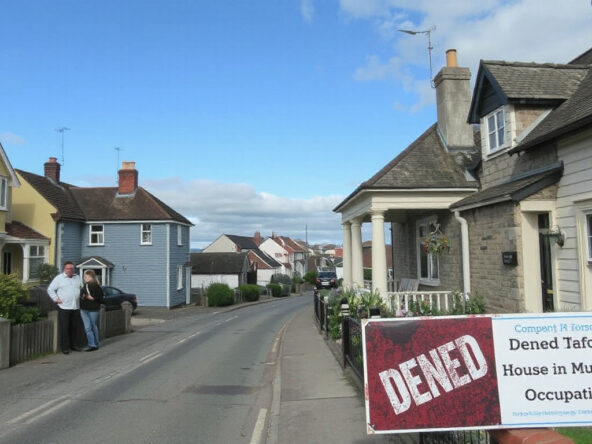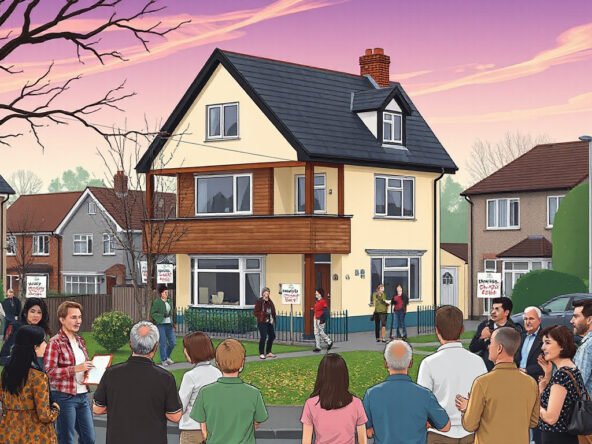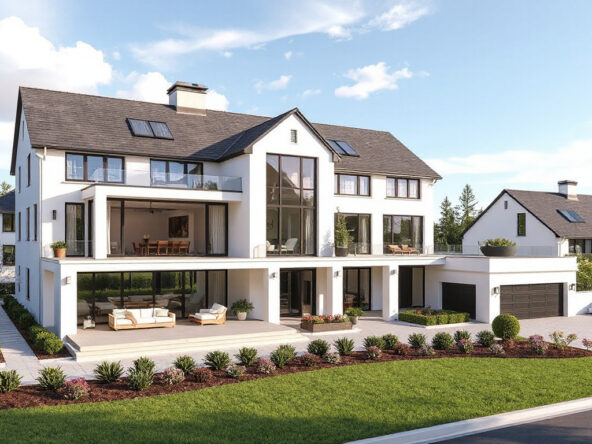In a decisive move reflecting community sentiment, North Belfast councillors have once again rejected a proposal to convert a residential house on Ponsonby Avenue into a House in Multiple Occupation (HMO). This marks the second rejection within six months, with local representatives, particularly from Sinn Féin, voicing clear opposition to the conversion amidst ongoing concerns regarding the impact of HMOs on neighbourhoods. The heightened scrutiny over HMO applications in North Belfast comes in the wake of four denials this year alone, even with initial inclinations from council officials leaning towards approval.
Houses in Multiple Occupation, which are typically rented to three or more tenants who are not part of the same household, have been a source of contention in various parts of Northern Ireland. In particular, regions known for their student populations, such as the Holylands and Stranmillis, have witnessed a notable rise in anti-social behaviour attributed to the transient nature of HMO tenants. As the trend for HMO license applications grows in North Belfast, local councils have the prerogative to reject these requests based on the principle of overprovision, which addresses the saturation of such occupancy types in specific areas.
The recent planning committee meeting of the Belfast City Council saw the proposal meet significant opposition, with only one councillor siding with the recommendation of council officials, who had deemed adequate space for amenity use available in close proximity to Alexandra Park. Despite these findings, the proposal garnered 18 objections, primarily focusing on issues such as parking shortages, road safety hazards, waste management challenges, the risk of elevated anti-social behaviour, and the potential degradation of the area’s community character due to increased numbers of transient residents. Similar previous applications in the locality have also faced substantial resistance, underscoring a broader trend of community-driven opposition to HMO developments in North Belfast.
Key Takeaways
- Local councillors in North Belfast prioritized community concerns over HMO conversions, rejecting proposals multiple times.
- The increase in HMO applications reflects a broader trend, yet councillors emphasized the negative impact on neighborhood stability.
- Despite official recommendations for approval, significant local objections influenced council decisions against new HMOs.
Overview of HMO Conversions in North Belfast
The ongoing debate around House in Multiple Occupation (HMO) conversions in North Belfast continues to spark heated discussions among local politicians and community members. Recently, proposals for converting a residential property on Ponsonby Avenue into an HMO were again rejected by the Belfast City Council Planning Committee. This marks the second disappointment for applicants in a mere six-month period, with Sinn Féin councillors leading the charge against the conversions, reflecting a broader hesitation in the local government to approve new HMOs despite recommendations from council officers.
In 2024 alone, four HMO applications in North Belfast have faced rejections, underscoring an increasing scrutiny placed on these types of housing arrangements, particularly in the wake of concerns stemming from problematic patterns observed in other areas, such as the Holylands and Stranmillis. These high-density housing situations have been linked to issues including anti-social behaviour, which has intensified public fears regarding the implications of more transient tenants within the community. The council’s decision to refuse the latest Ponsonby Avenue proposal was backed by 18 objections from residents, who raised significant issues related to parking, road safety, waste management, and the potential degradation of community cohesion.
A report by council officials noted the availability of adequate amenity space adjacent to Alexandra Park, yet community sentiment remains resolute against overprovision of HMOs in the area. The cumulative effect of multiple refusals suggests a proactive approach by Belfast City Council to manage the specific pressures that come with increased HMO conversions, pivoting against what many locals view as a burgeoning crisis of community identity and infrastructure strain in North Belfast.
Community Concerns and Councillors’ Decisions
The rising tension between local community values and urban development needs is at the forefront of the ongoing HMO debate. Local residents argue that the proliferation of HMOs threatens the stability of their neighborhoods, citing issues such as noise pollution and a decline in communal spirit as key concerns that have led to significant opposition. A Sinn Féin spokesperson articulated that protecting the essence of North Belfast’s residential areas is critical, emphasizing the need for housing solutions that respect existing community frameworks. The increased frequency of HMO applications and subsequent rejections suggest that officials are now prioritizing community feedback over economic pressures that might incentivize more transient living arrangements. This vigilant stance reflects a growing awareness of the socio-economic challenges posed by HMOs, while also spotlighting the necessity for comprehensive housing strategies that balance development with maintaining a cohesive community structure.
Feel free to contact us via WhatsApp, social media, or email.
Always find the best rooms to rent & HMOs for sale in the UK at HMO Reporter.




